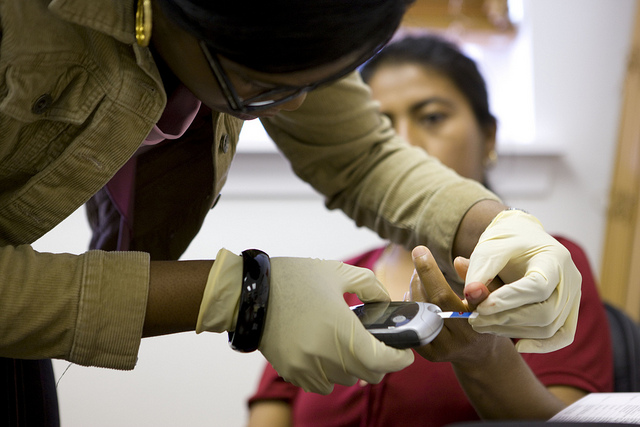World Health Day 2016: Beat diabetes Inspire article
Raising awareness of the rise in diabetes
Diabetes is on the rise. Currently 350 million people worldwide suffer from this chronic, but largely preventable disease, and this is likely to more than double in the next 20 yearsw1. The reason? Unhealthy diets and physical inactivity have led to increased obesity and a surge in type 2 diabetes. The aim of this year’s World Health Day is to increase awareness about the rise in diabetes and the consequences it has, particularly in low- and middle-income countries. That’s why this week we have gathered lots of useful resources for teaching the topic of diabetes, from understanding what causes it and to what extent food and a sedentary lifestyle are responsible, to shedding light on the everyday life of someone suffering from this disease.
Why not start by seeing how much you and your students already know about diabetes? This short quiz from the World Health Organization (WHO) will test your knowledge about diabetes’ causes, effects and prevention. If you, or your class, don’t get top marks, Klaus Dugi, Professor of Medicine at the University of Heidelberg, Germany, discussed the disease in our first ever issue. Even in 2006, the rates of diabetes were rising, and they show no signs of slowing down.

Nursing; image source: Flickr
Diabetes mellitus covers several disease states that are all characterised by an abnormal increase in blood sugar (glucose) levels. People who are affected by diabetes need to learn how to live with the symptoms, but they must also test their blood sugar levels throughout the day. These experiments on sugar detection can be used to demonstrate the problems that people with diabetes face. They also help explain the science behind the glucose test strips that are commonly used by patients.
However, it is no good testing your blood sugar level if you are not going to take measures to manage it. Diabetes patients must often watch what they eat and those suffering from type 1 diabetes must carefully match their food and insulin intake. You can explore the amount of carbohydrates in different foods with the ‘food spinner’, produced by the International Diabetes Federation, and learn more about how carbohydrates impact our health with the TedEd video below:
This brings us back to the start, where readily available carbohydrate- and calorie-rich foods, as well as a sedentary lifestyle, are often blamed for the startling rise in obesity. To throw something else into the mix however, our genes may also be part of the problem. Studies on twins have shown that obesity could be as much as 70% genetic, but does carrying so called ‘fat genes’ mean someone is destined to be obese, or can they escape their fate? What do you think?
We hope these resources have expanded your knowledge and given you a few teaching ideas too. The objective of World Health Day 2016 is to increase awareness of diabetes – what better way to do this than in your classroom!
Web References
- w1 – For more information about diabetes and World Health Day 2016 see http://www.who.int/campaigns/world-health-day/2016/en/





